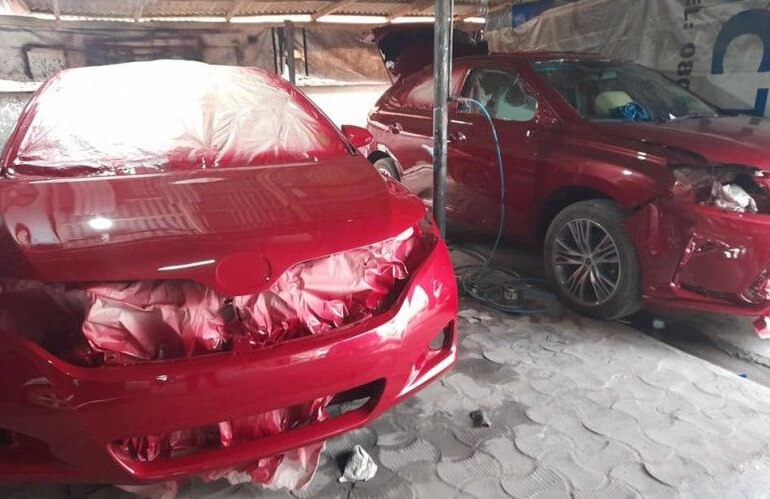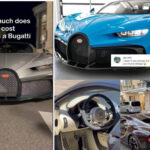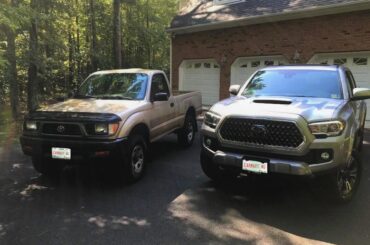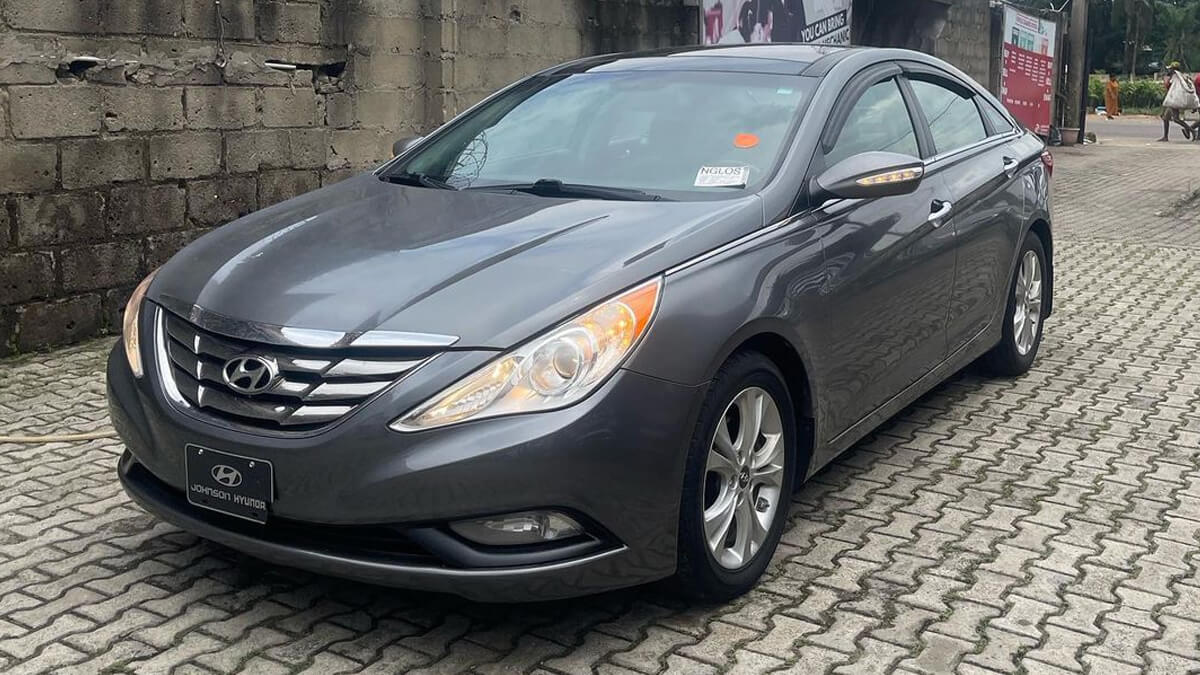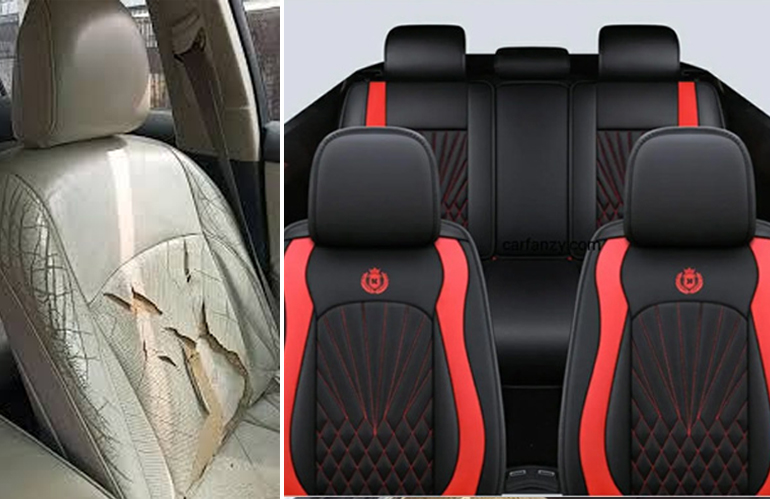Car painting services in Nigeria are widely available, and there are numerous auto body shops and specialised painting centres that offer car painting services. Whether you want to change the colour of your car, fix paint damage, or give it a fresh new look, you can find professional car painters throughout the country.
Table of Contents
To get your car painted in Nigeria, you can follow these steps:
- Research and find reputable car painting shops:
Look for auto body shops or painting centres that have a good reputation and positive customer reviews. You can ask for recommendations from friends, family, or car enthusiasts who have had their cars painted before.
- Visit the shop and discuss your requirements:
Once you have identified a few potential options, visit the shops in person to discuss your car painting needs. Talk to the technicians or painters to explain what you want, whether it’s a full repaint, touch-up, or any specific design or colour preferences.
- Get a cost estimate:
Ask for a detailed cost estimate that includes the price of paint materials, labour charges, and any additional services or repairs that may be required. Make sure you understand what is included in the estimate and if there are any warranties or guarantees provided.
- Schedule an appointment:
If you’re satisfied with the cost estimate and confident in the shop’s capabilities, schedule an appointment for your car painting. Depending on the complexity of the job and the availability of the shop, it may take a few days or weeks to complete the painting process.
- Prepare your car for painting:
Before taking your car to the shop, make sure to clean it thoroughly and remove any personal belongings. The car should be free of dirt, dust, and grease to ensure a smooth and even paint application.
Drop off your car and wait for completion:
On the scheduled day, bring your car to the shop and hand it over to the technicians. They will start the preparation process, which may include sanding, priming, and masking the areas that are not supposed to be painted. Then, they will apply the chosen paint colour or design to your car. The drying process may take some time, depending on the type of paint used.
- Inspect and collect your car:
Once the painting is completed, inspect your car carefully to ensure the quality of the work and that all your requirements have been met. If you notice any issues or concerns, discuss them with the shop before taking possession of your vehicle. Pay the agreed-upon amount, and if satisfied, you can drive away with your newly painted car.
While getting your vehicle painted, here are five fundamental interesting points:
- 1. Choose How Good a Paint Job You Really Need
In the event that your vehicle has a couple of minor chips and imperfections, at that point painting the whole vehicle most likely doesn’t bode well. Repainting the hood and finishing up entryway dings should go from N85,000 to N500,000, contingent upon how much work is required. Remember that where you live can decide the level of fixes.
Vehicles in blistering atmospheres, where the sun is the greatest adversary, fight with foggy completes and blurred paint brought about by serious warmth and harming beams. This could make cleanup fixes more troublesome, since influenced zones will probably be huge surfaces, for example, the hood, back deck, and rooftop. Of course, vehicles in cooler atmospheres could have dashes of rust underneath the paint that require consideration.
- 2. Try not to Paint over Problems
Never put a slim, shallow, restorative concealment over a primary issue—and painting over marks or rust without tending to significant issues is only that. On the off chance that your vehicle has heaps of dings and some rust, covering up the issues will just aggravate them in both the close and long haul. A sparkling, new layer of paint will probably make body harm considerably more noticeable while rusting boards will keep on decaying on the off chance that they’re not appropriately tended to. Paint is corrective, not a way to conceal bodywork issues.
- 3. Keep Your Budget Realistic
Suppose you have a more established vehicle with high miles, esteemed at several thousand dollars. It’s looking somewhat drained, yet you love the vehicle, it’s actually running incredibly. Selecting a less expensive repaint in a similar tone is fine if all you need is speedy outside refreshing for insignificant money cost. This may remain constant in case you’re hoping to sell this equivalent vehicle
- 4. Comprehend the Work Involved
For cheap paintwork, the arrangement will be insignificant, and the shop probably won’t exclude fixes to rust and entryway dings. The glass region and other non-painted outside trim will be concealed prior to repainting, however, that is about it. From 50 feet away it may look fine, yet very close there will be various indications it was a surface respray, for example, overspray on the elastic gaskets around the windows and on outside trim, contrasts in the shade of the doorjambs, and spots of overspray where the veiling off wasn’t great.
- 5. Paying More Gets You a Better Paint Job
The more you pay, the better the paint shop’s planning. A few shops just won’t do slapdash, spending work. Some will extend to a few degrees of paint employment opportunities. As you climb the value stepping stool, shops will eliminate more trim pieces and things like head-and-tail lamps.
This guarantees the torment will cover sharp twists in the sheet metal and get into the hole in the body where the more established paint may have appeared on the other side. In more costly paint occupations, the prep will probably likewise include sanding off the more seasoned paint, fixing outside harm, and in any event, eliminating glass. This adds time and cash to the cycle, which is the reason something like this could cost N2 million or more.
How much does it cost to paint a car in Nigeria?
In Nigeria, vehicle painters or sprayers might charge between ₦100,000 to ₦200,000 for painting or repainting cars. Vehicle painting and repainting in advanced painting shops might range from N85,000 to N500,000.
What is the price of 1 Litre of car paint?
The price of 1 litre of car paint in Nigeria can vary depending on several factors, including the brand, quality, type of paint (basecoat, clearcoat, etc.), and where you purchase it. It’s difficult to provide an exact price as prices can fluctuate over time and vary between different locations and suppliers
The price range for 1 litre of car paint in Nigeria can be approximately between ₦4,000 to ₦10,000 or more. Higher-quality paints or specific brand paints may be more expensive than the lower-priced options.
Top 5 Car Painting Brands in Nigeria
In Nigeria, there are several popular car painting brands that are known for their quality and reliability. While individual preferences may vary, here are the Top five most popular car painting brands in Nigeria:
- Sikkens: Sikkens is a well-known brand in the automotive paint industry and is highly regarded for its high-quality finishes and durability. It offers a wide range of colour options and paint systems suitable for different car painting requirements.
- Glasurit: Glasurit is another reputable brand known for its premium automotive paints. It is favoured for its excellent colour-matching capabilities, long-lasting finishes, and advanced paint technologies. Glasurit products are often used by professional car painters and auto body shops.
- DuPont: DuPont is a globally recognised brand that offers a range of automotive paints. Their products are known for their high performance, durability, and colour accuracy. DuPont paints provide excellent coverage and are popular among car enthusiasts and professionals alike.
- Nippon Paint: Nippon Paint is a well-established paint brand that offers automotive paints suitable for car painting. They provide a variety of paint options, including basecoats, clearcoats, and speciality finishes. Nippon Paint is known for its durability and colour vibrancy.
- PPG: PPG is a leading global paint manufacturer that produces automotive paints known for their quality and innovation. They offer a wide range of paint solutions for car painting, including basecoats, clearcoats, and speciality finishes. PPG paints are known for their durability, colour accuracy, and ease of application.
How many Litres of paint are required to paint a car?
If we start from the average norm, then about 1/4 litre of paintwork material is usually spent on 1 square meter of the body. Therefore, for painting the whole car body may need 3-3.5 litres of enamel. Auto polish is usually required in the amount of 2/3 of the enamel, that is, 2-2.5 litres.
Difference between original car paint and repaint
The primary difference between original car paint and repaint lies in their application and timing.
Here are some key distinctions between repainting your car and the original paint the car came with:
- Original Car Paint: Original car paint refers to the paint job applied to a vehicle at the factory during the manufacturing process. It is typically done using advanced techniques, such as electrostatic deposition, which ensures an even and durable coating. Original car paint is applied before the vehicle is fully assembled, allowing for comprehensive coverage on all parts.
- Repaint: A repaint refers to any subsequent application of paint to a vehicle after it has left the factory. It may be done for various reasons, such as repairing damage, refreshing the appearance, or changing the colour. Repainting is typically performed at a body shop or by a professional painter.
Key Differences:
- Timing: Original car paint is applied during the manufacturing process, while a repaint is done after the vehicle has been on the road.
- Application: Original car paint is often applied using advanced industrial techniques in a controlled environment, whereas repainting may involve different methods, such as spray guns or paintbrushes.
- Quality and Finish: Original car paint is designed to meet strict industry standards, ensuring durability, weather resistance, and a factory-finish look. A repaint’s quality can vary depending on the skill of the painter and the materials used.
- Disassembly: During the original paint process, a vehicle’s components are painted individually before being assembled. In a repaint, parts like bumpers, doors, or hoods may be removed to ensure thorough coverage.
- Colour Match: Repainting can present challenges in colour matching, especially for older vehicles or when trying to match the existing colour. Original car paint is precisely matched to the vehicle’s specifications.
- Vehicle History: A vehicle with a repaint may have a record of previous repairs or damage, which can impact its value and desirability.
How to Protect Your Newly Painted Vehicle
Protecting a newly painted vehicle is crucial to maintain its appearance and ensure the longevity of the paint job. Here are some essential steps you can take to protect your freshly painted car:
- Follow the curing time: Paint takes time to cure fully, so it’s important to follow the recommended curing period provided by the paint manufacturer or the body shop. During this time, avoid exposing the vehicle to harsh conditions or washing it.
- Avoid exposure to the elements: Protect your vehicle from extreme weather conditions, such as direct sunlight, rain, snow, or excessive heat. If possible, park your car in a covered or shaded area to minimise exposure to UV rays, which can cause fading or damage to the paint.
- Hand wash with care: When it’s time to clean your newly painted car, opt for a hand wash instead of an automatic car wash. Use a mild car wash soap and a soft sponge or microfiber cloth to prevent scratching the paint. Rinse thoroughly and dry the vehicle with a soft, clean towel.
- Use quality car care products: Choose car care products specifically designed for automotive use and avoid harsh chemicals or abrasive cleaners that can damage the paint. Apply a high-quality wax or sealant to provide an extra layer of protection and enhance the shine. Follow the product instructions for proper application.
- Protect against scratches and chips: Be cautious when parking and avoid contact with objects that could scratch or chip the paint. Consider using a car cover to protect the vehicle when it’s not in use, particularly if it’s exposed to outdoor elements or potential hazards.
- Maintain regular maintenance: Regular maintenance, such as washing and waxing, will help protect your car’s paint. Stay on top of any necessary repairs, such as fixing stone chips or scratches promptly, to prevent them from becoming larger issues.
- Avoid abrasive materials: When cleaning or drying the vehicle, avoid using abrasive materials like rough sponges, brushes, or towels that can scratch the paint. Instead, opt for soft, microfiber cloths and gentle cleaning tools.
- Be mindful of fuel spills: Fuel and gasoline can damage the paint if left on the surface for an extended period. Be cautious when refuelling, and if any spills occur, clean them promptly with a soft cloth and mild soap.
By following these guidelines, you can help protect your newly painted vehicle and keep it looking its best for years to come
Have 1 million naira and above to Buy or Sell Cars In Nigeria? Check carlots.ng
All rights reserved. Reproduction, publication, broadcasting, rewriting, or redistribution of this material and other digital content on carmart.ng is strictly prohibited without prior express written permission from Carmart Nigeria - Contact: [email protected]

